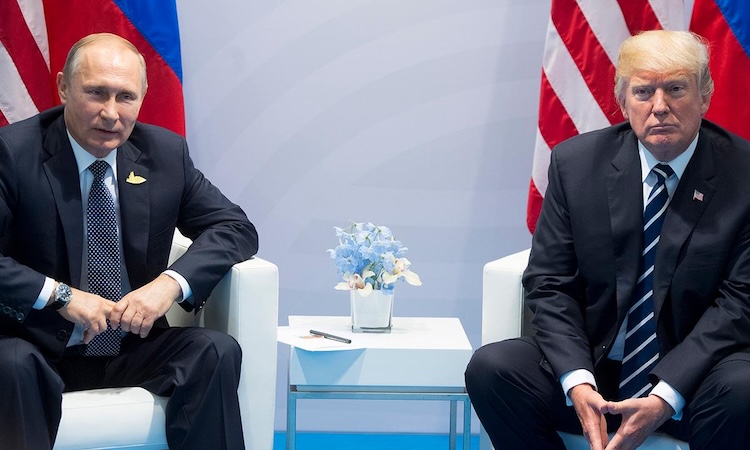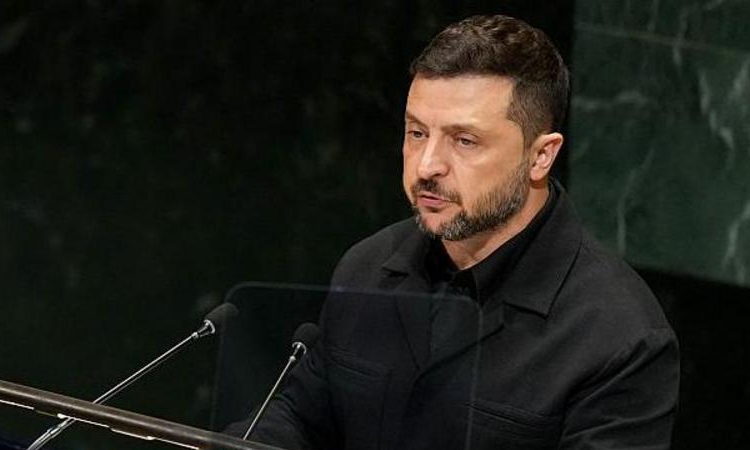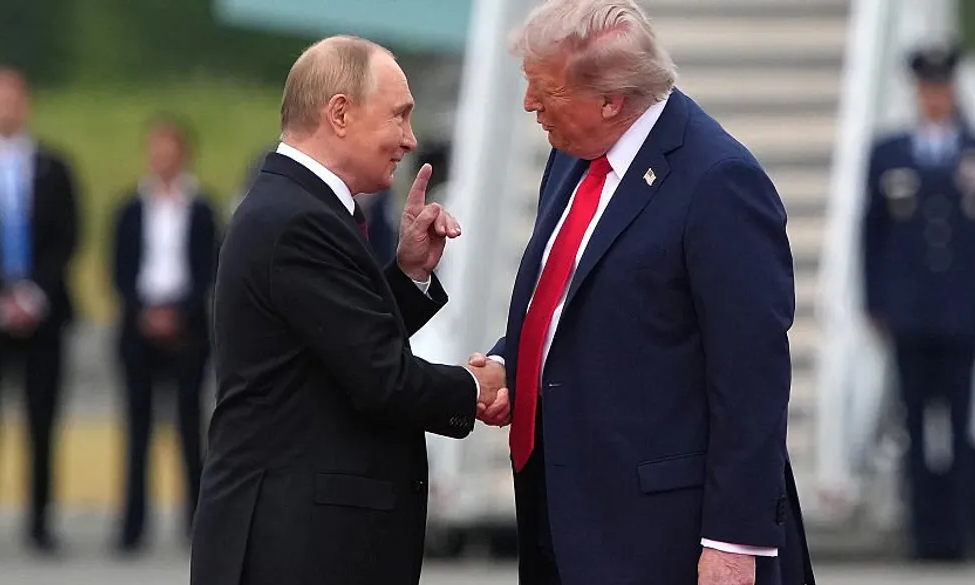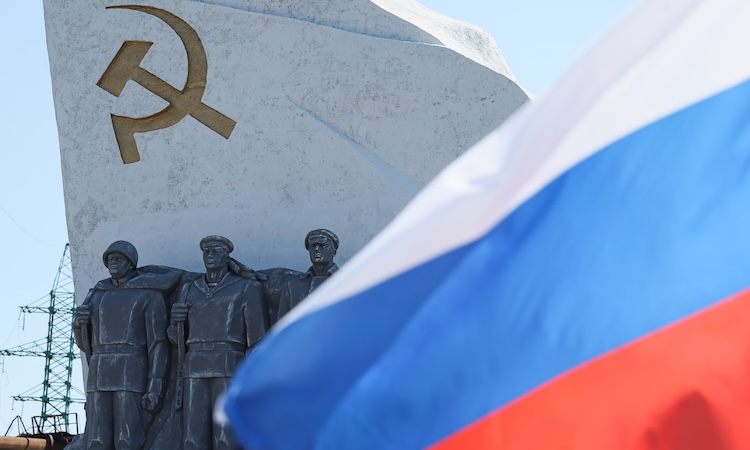On 11 May 2025, Russian president Vladimir Putin invited Ukraine to take part in direct talks with Russia four days later, noting that Russia was seeking serious negotiations aimed at moving towards a lasting, strong peace.
President Putin’s challenge to the European Union and the USA to help facilitate the first direct face-to-face peace talks between Russia and Ukraine since the early days of Russia’s special military operation had an immediate and jarring effect on all the hypocritical mood music emanating from the collective west, which has consistently painted Russia as the enemy of peace.
Russia does not take at face value the west’s much-parroted demand for a 30-day ceasefire without preconditions. Such a ceasefire would interrupt the steady advance of Russian troops, affording a breathing space during which Nato’s Ukronazi storm troopers could regroup and rearm, thereby not drawing to a close but instead pointlessly prolonging a war that the west’s proxies cannot win.
(Be it noted that those hypocrites who brand Russia as the enemy of peace are one and the same people who are collaborating with zionism in the continuing genocide of the Palestinian nation.)
But Russia has always made it clear that serious peace talks, talks that address Russia’s pressing need for security guarantees to halt the aggressive expansion of Nato on Russian borders and the denazification of Ukraine, would be welcomed, as dealing with the root cause of the conflict. To this end, Moscow proposed face-to-face talks between Russian and Ukrainian negotiators in Istanbul – a gentle reminder that peace had in fact been on offer at talks held in the same city all the way back in March 2022.
But the plan was sabotaged by the bizarre antics of Ukraine’s stooge actor-president Volodymyr Zelensky, who flew to Ankara
instead of to Istanbul, made a big fuss because Putin was not personally attending the talks (no such commitment had been made at this stage), had a lengthy meeting with Turkish president Recep Tayyip Erdogan, and then flew off, leaving the gathered diplomats kicking their heels.
Nevertheless, fearful lest the Istanbul talks should prosper despite this clear sabotage, distracting attention from their ‘ceasefire now’ monomania and actually making some practical headway in negotiating an end to the war, British prime minister Keir Starmer and French president Emmanuel Macron rallied their ‘coalition of the willing’, bracing themselves for what might come out of the next week’s impending phone call between US president Donald Trump and his Russian counterpart.
What both the European imperialists in the ‘coalition of the willing’ and President Zelensky dread is that the USA will either walk away from the whole mess, leaving Europe to sort it out themselves, or will bypass the ‘coalition of the willing’ completely and pressure Kiev into accepting that Ukraine has lost the war and needs now to negotiate the terms of its surrender.
The choice of Istanbul for the talks is significant. It was there that, all the way back in March 2022, right at the beginning of the special military operation, a deal was all-but agreed between the parties. It was pressure from Washington and London (most notably via Boris Johnson) that pulled the plug on an agreement that had in fact been initialled by both sets of negotiators.
Its implementation would not only have saved billions in dollars but would also have spared hundreds of Ukrainian towns and hundreds of thousands of human lives had it been allowed to go through.
Truth to tell, there was never going to have been a positive outcome for a country whose neo-nazi leaders were willing to let US imperialism use their country as a battering ram in a proxy war against Russia.
The only heroes in this sorry tale are the Russian men and women who were prepared to give everything, including their own lives, in the struggle to defend the Russian homeland from Nato expansionism. Their feat will be remembered long after imperialism is buried.
Neither Maga nor ‘globalism’ can rescue imperialism
Whilst the media coverage of the ongoing talks on Ukraine has mostly busied itself speculating on the shifting and self-contradictory pronouncements issuing from the White House, or with Zelensky’s hysterical tantrums in Turkey, or with the latest barmy neocolonial dreams of France’s Macron and Britain’s Starmer, what cannot be concealed is the reality that the crushing victory of the Russian military over Ukrainian fascism has brought sharply into focus the isolation and fragmentation of imperialism worldwide, as its crisis of overproduction deepens.
President Trump owes his great popularity at home to posing as a champion of the resistance against globalisation, pledged to ‘making America great again’ (Maga) by bringing jobs back to America and initiating the industrial reindustrialisation of the country.
But ‘globalism’ is just another euphemism for imperialism, and imperialism is no less than the highest phase of capitalism, bringing society to the eve of the socialist revolution. Imperialism is capitalism in the age of monopoly, the age where the hunt for maximum surplus value more and more relies upon the export of finance capital and less on the export of manufactured commodities.
So Trump’s love affair with protectionism, slapping on tariffs left right and centre, hoping thereby to reverse the decay of US industry and restore the earlier availability and prestige of relatively well-paid blue collar jobs, has always been based on a delusion.
The question as to whether Trump actually believed in Maga himself, or just latched onto it as a handy tool to keep riding the populist wave, is a moot point. The historical record of protectionism in the thirties of the last century, when tariff wars resulted in the halving of world trade and hastened the onset of imperialist war, is hardly a closed book.
Trump’s fantasy of turning the clock back to the more ‘innocent’ time when the USA performed marvels of mass production, led the way in innovation and remained a master of industry and commerce as well as finance, is not going to rescue US imperialism. But then, as a matter of fact, neither will the collective wisdom of the liberal elites and neocons be able to rescue US imperialism either.
Neither a retreat into Maga nostalgia nor the slick liberalism of the wizards of high finance will suffice to help the once mighty USA to avoid humiliating collapse.
Imperialism: Expand or die
No, the only way that US imperialism can hope to get through the overproduction crisis is by finding new markets to dominate, new resources to plunder and new labour to exploit.
There are two territories that would be the most attractive in this regard: China and Russia. Dominating either of these countries would serve the double purpose of opening up a massive scope for looting and also removing from the international scene a major obstacle to imperialist meddling.
The failure to crush Russia is a devastating blow, not only to the USA, but to imperialism globally.
The proxy war against Russia, though initiated and directed by the USA, has been a collective effort by all the imperialist powers, all of whom have a vested economic and political interest in the weakening and balkanisation of Russia, especially now that Russia has survived the counter-revolutionary treachery of the Gorbachev and Yeltsin era and is taking steps to restore the national dignity and independence of the country.
What has until now united the imperialist-led west to a degree, disregarding such loftier considerations as ‘shared European values’, liberalism or democracy, has been the unspoken acknowledgment that the west as a whole has a common interest in seeing independent states like China and Russia weakened and balkanised.
Conversely, the non-imperialist majority of the world’s people have a common interest in resisting this, felt the more keenly now that there is so much at stake. The growth and development of the Brics grouping is one such example. The fraternal military assistance freely given to Russia by the DPRK and the heroic contribution of Yemeni fighters to the Palestinian resistance against zionist imperialism are two more.
Expect many more.
The gang of three – Macron, Starmer and Merz (the new German chancellor) – will find it very hard to whip up a ‘coalition of the willing’ from among European governments prepared to take over the job of fighting Nato’s war against Russia (already the Italian government has flatly refused to consider sending Italian troops to Ukraine).
Undisputed US leadership of the ‘free world’ emerged as the result of a very particular set of historical conditions, few of which now obtain. It is no good the EU trying on grandfather’s clothes and hoping thereby to command the respect which formerly came automatically with the job.
The world front of imperialism has been gravely weakened by the failure of the proxy war in Ukraine, which in turn is greatly expanding the revolutionary opportunities in the coming period.















